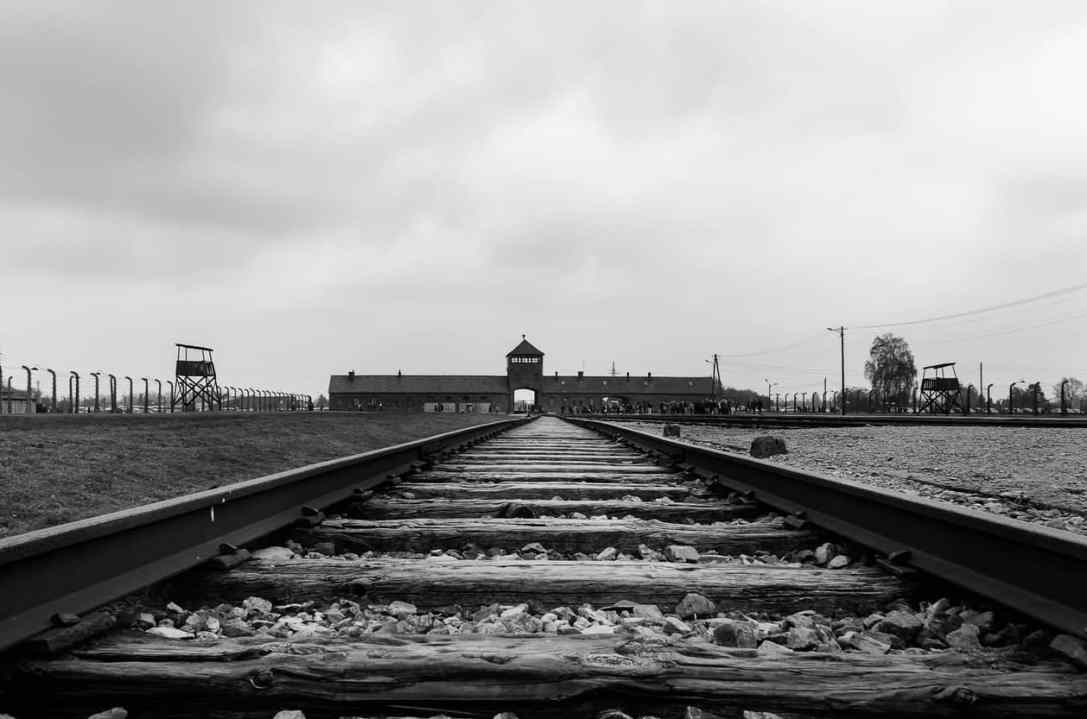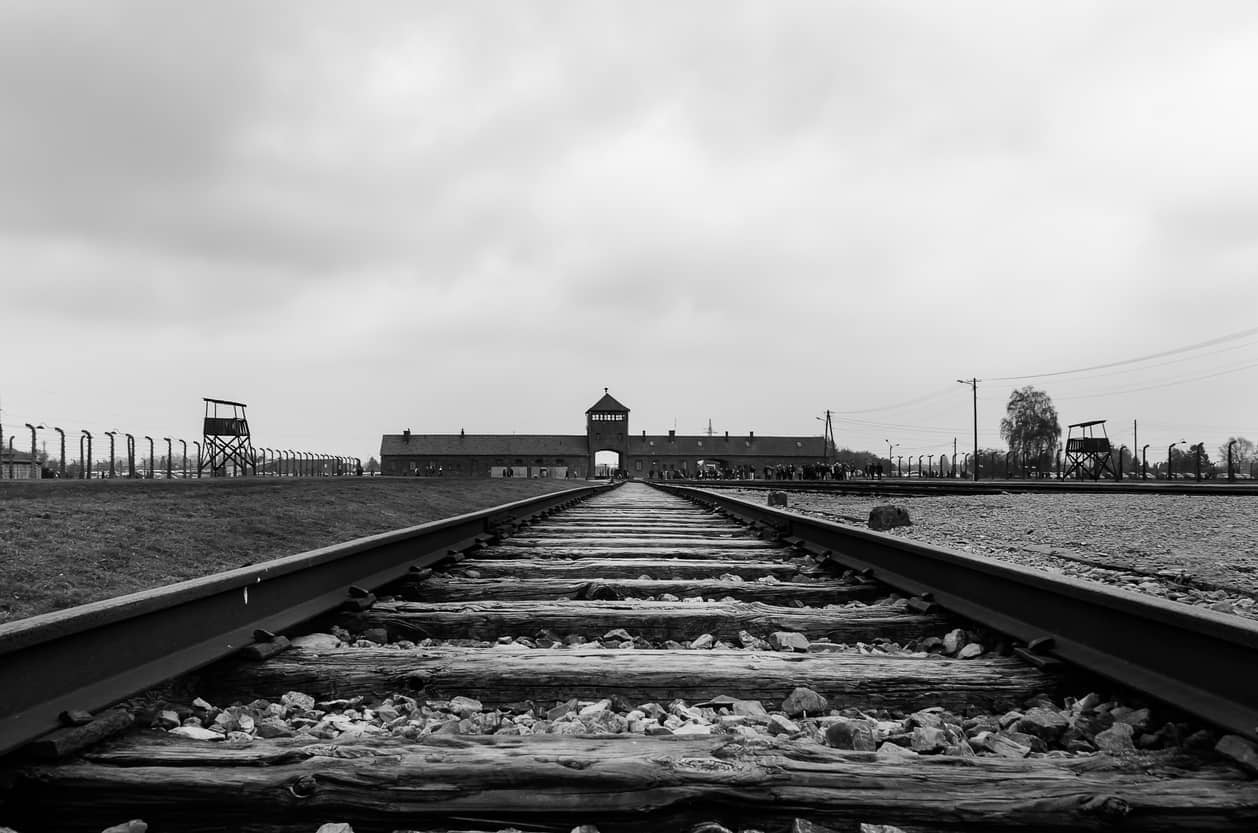‘If people like me do not proclaim their experiences for others to hear, then future generations will not learn the lessons of these, perhaps the darkest, moments of our history,’ said Freda Wineman, who survived Auschwitz and other Nazi concentration camps and dedicated much of her life after the second world war to sharing her story. Her death earlier this month at the age of 98 meant not only the loss of a warm and much-admired individual but also that of a powerful witness to the horrors unleashed by Nazi Germany. As the Holocaust fades from living memory into history, Wineman’s story has lost nothing of its relevance, but new ways of telling it will have to be found.
The power of survivor testimony lies in its ability to create empathy when the raw fact that 6 million men, women and children were murdered during the Holocaust remains a statistic beyond real comprehension. When Wineman spoke about the selection process at Auschwitz-Birkenau, which tragically separated her from her mother and younger brother Marcel who were both sent to the gas chambers while she was selected for work, it was impossible not to engage with her familial loss on an emotional level and be impacted by it.
Wineman shared her story in the Independent last year to mark Holocaust Memorial Day in the hope that it might inspire others to challenge Holocaust denial and distortion when they encounter it. ‘If they ever hear anyone question what happened, they should tell them that they heard Freda Wineman, and she survived the Holocaust. I ask them to be my witnesses.’ But of the original 3,000 Holocaust survivors who settled in the UK after the war, fewer and fewer are still able to share their story.
Politicisation of the Holocaust and its deliberate linking with Israeli policy is cynical and often very difficult to pin down
Yet, Holocaust education is a relevant as ever. While outright Holocaust denial has become less prevalent in public debate since the high-profile case of David Irving brought much of the historical evidence into the limelight in the late 1990s, distortion, relativisation and ignorance are still widespread today. A nation-wide survey in Britain last year found that nearly one in ten respondents ‘believed the Holocaust was a myth or that the number of Jews killed in the Holocaust has been greatly exaggerated.’ In the US, a new survey revealed that the same number there even claimed that Jews had caused it themselves.
Such beliefs are not always down to a sheer lack of information but often stem directly from anti-Semitic attitudes. The old tropes about powerful wealthy Jews who deceive others for their own benefit is alive and well, and there is a worrying tendency to take this problem less seriously than other forms of racism.
The footballers Marcus Rashford and Jesse Lingard are a point in case. Both have been prominent anti-racism and discrimination campaigners in the past, yet last weekend they were photographed with the disgraced rapper Wiley who was banned from Twitter several times for anti-Semitic rants in which he called Jewish people ‘cowards and snakes’ and claimed black people were at ‘war’ with them. Rashford and Lingard apologised following the backlash this caused, but it is hard to imagine that they would have been happy to be photographed with a well-known racist of any other kind. This exceptionally casual attitude towards anti-Semitism is a troubling phenomenon that all western countries have yet to confront effectively.
While other factors are at play, Holocaust denial and distortion play a major role in many forms of anti-Semitism worldwide. Jews are accused of inventing or exaggerating the events to justify the existence and policies of the state of Israel. As this is a worldwide phenomenon, Germany and Israel sponsored a UN resolution against Holocaust denial last week on the occasion of the 80th anniversary of the Wannsee Conference, where representative of the Nazi government and SS met to organise what they called the ‘Final Solution to the Jewish Question’.
While the 193-member UN Assembly adopted the proposal, Iran immediately distanced itself from it. The state has long sponsored campaigns that distort and deny the Holocaust in an attempt to undermine Israel’s right to exist. Their citizens are prevented from learning about the Holocaust while the regime condones cartoon competitions that parody Holocaust memory. The winning entry of such a competition in 2006, for example, showed an Israeli crane erecting a wall in front of Jerusalem with the gate of Auschwitz concentration camp painted on it, implying that the Holocaust is a mere political tool.
Such politicisation of the Holocaust and its deliberate linking with Israeli policy is cynical and often very difficult to pin down. But the spreading of such distortions of the past is made easier by the complete absence of any human connection with or empathy for the 6 million victims of the genocide committed during the second world war. It is difficult to maintain abstract hatred when a softly-spoken survivor like Freda Wineman tells you her life story of horrific personal suffering, amplified by the knowledge that millions experienced such things. Holocaust survivors are a powerful way to get through to people, and they have the power to shape attitudes.
As the last survivors vanish and their voices disappear forever, the challenge is to find ways to replicate the human element of Holocaust memory. Various projects are underway that use clever technology involving virtual reality and the ability to interact with holograms of survivors, which hold the pre-recorded answers to thousands of questions and can directly respond, imitating interaction and conversation. Whether such technological replicas will have the same impact as a real human talking to another remains to be seen. But the challenges that survivors like Wineman were trying to address are as real as ever.








Comments